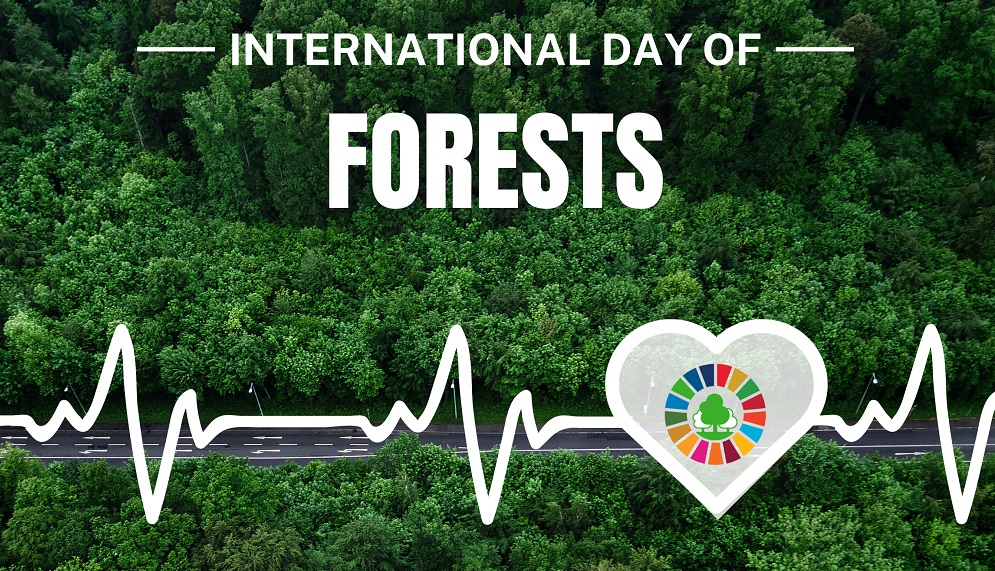Introduction:
March 21st marks International Forest Day, a day dedicated to celebrating and raising awareness about the importance of forests and trees in our lives. Forests are not only crucial for maintaining ecological balance but also serve as habitats for numerous species, provide livelihoods for millions, and play a vital role in combating climate change. As we commemorate this day, it’s imperative to reflect on the significance of forests and consider practical steps to ensure their preservation.
The Importance of Forests:
Forests are often referred to as the lungs of the Earth, as they play a critical role in producing oxygen and absorbing carbon dioxide. They act as natural carbon sinks, helping to mitigate the impacts of climate change by storing carbon and regulating the global climate. Additionally, forests are home to approximately 80% of the world’s terrestrial biodiversity, making them invaluable reservoirs of life.
Moreover, forests provide essential ecosystem services such as soil conservation, water purification, and flood regulation. They also support local economies through activities such as timber production, ecotourism, and the harvesting of non-timber forest products. For many indigenous communities, forests hold cultural and spiritual significance, representing a connection to their ancestral lands and traditions.
Challenges Facing Forests:
Despite their importance, forests worldwide face numerous threats, including deforestation, illegal logging, urbanization, agricultural expansion, and wildfires. Deforestation, in particular, is a significant concern, with vast areas of forest being cleared each year to make way for agricultural activities, infrastructure development, and urban expansion. This rampant destruction not only leads to biodiversity loss but also exacerbates climate change by releasing stored carbon into the atmosphere.
Furthermore, forests are increasingly vulnerable to the impacts of climate change, including extreme weather events such as droughts, storms, and wildfires. These disturbances can have devastating effects on forest ecosystems, disrupting biodiversity, and reducing their ability to provide essential services.
Protecting Our Forests:
Preserving and restoring forests is crucial for mitigating climate change, conserving biodiversity, and ensuring the well-being of present and future generations. Governments, civil society organizations, businesses, and individuals all have a role to play in protecting our forests. Here are some practical steps that can be taken:
- Promoting Sustainable Forest Management: Implementing sustainable forestry practices that balance environmental, social, and economic considerations is essential for maintaining healthy forests. This includes adopting techniques such as selective logging, reforestation, and agroforestry, which minimize the impact on forest ecosystems while supporting local livelihoods.
- Combatting Illegal Logging and Deforestation: Strengthening law enforcement efforts and implementing effective monitoring systems are crucial for combating illegal logging and deforestation. Additionally, promoting sustainable land-use planning and providing incentives for conservation can help reduce pressure on forests from agricultural expansion and urban sprawl.
- Supporting Indigenous and Local Communities: Recognizing and respecting the rights of indigenous and local communities to manage and benefit from forest resources is key to ensuring their long-term conservation. Indigenous peoples have traditional knowledge and practices that are invaluable for sustainable forest management and biodiversity conservation.
- Investing in Forest Conservation and Restoration: Governments, businesses, and international organizations should allocate adequate resources towards forest conservation and restoration efforts. This includes funding for protected areas, reforestation initiatives, and community-based conservation projects.
- Raising Awareness and Education: Educating the public about the importance of forests and the threats they face is essential for fostering a culture of conservation. By raising awareness and promoting sustainable lifestyles, individuals can contribute to forest protection efforts in their daily lives.
Conclusion:
On International Forest Day, let us reaffirm our commitment to protecting and preserving our planet’s precious forests. By taking collective action and adopting sustainable practices, we can ensure that forests continue to thrive for generations to come. Let’s work together to safeguard these invaluable ecosystems and uphold our responsibility as stewards of the Earth.
Last Add:
As a final suggestion to protect our forests, I propose the establishment of a global initiative aimed at planting one trillion trees by 2030. This ambitious goal, known as the Trillion Trees Initiative, seeks to combat climate change, restore biodiversity, and enhance ecosystem resilience through large-scale reforestation efforts. By mobilizing governments, businesses, civil society organizations, and individuals around the world, we can make significant strides towards achieving this target. Planting a trillion trees would not only sequester vast amounts of carbon dioxide but also create green jobs, support local communities, and promote biodiversity conservation. Let us embrace this opportunity to leave a legacy of sustainability and ensure a greener, more resilient future for our planet.






